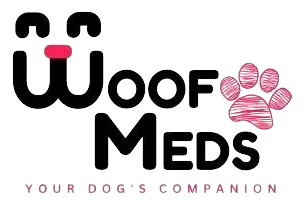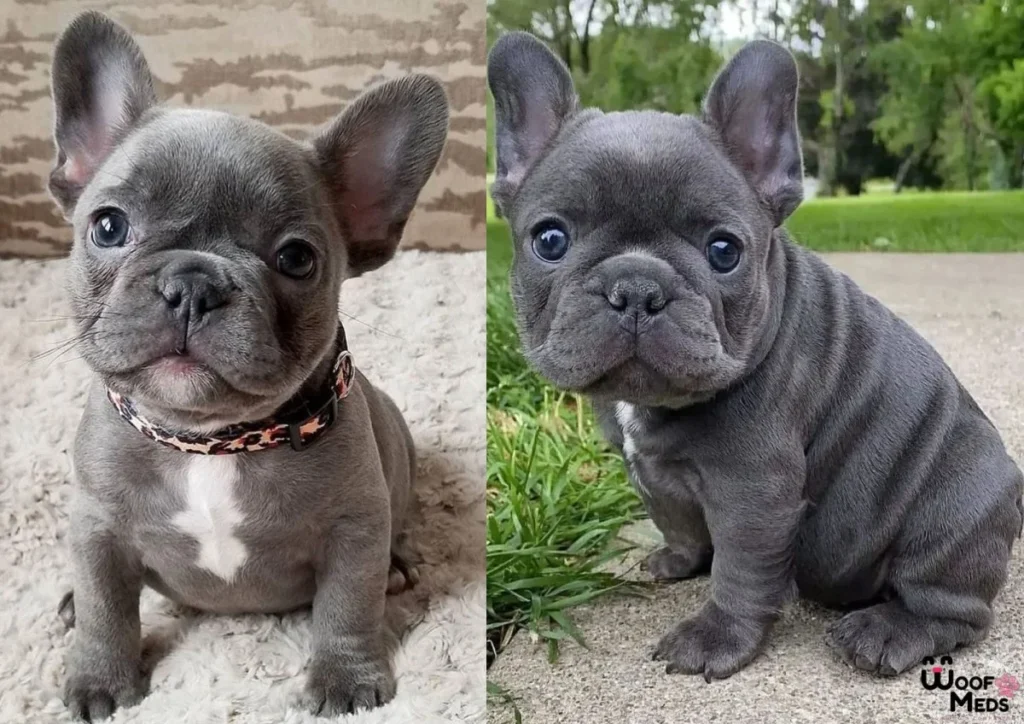Puppies of the French Bulldog breed are highly sought-after due to their endearing dispositions, unique looks, and loving dispositions. These tiny pups are a great option for a variety of dog enthusiasts since they are full of personality despite their small size. All the information you need to make an informed decision about getting a French Bulldog puppy or just to learn more about this adored breed is right here in this extensive guide.
The Origins of the French Bulldog
The history of French Bulldogs, also known as “Frenchies,” is lengthy and fascinating. Despite what their name might imply, the breed’s origins are in England. They were first developed as a scaled-down variation of the English Bulldog and were well-liked by Nottingham’s lace industry. During the Industrial Revolution, these laborers moved to France with their little bulldogs, and the breed quickly became very well-liked there, especially in Paris. The breed was improved upon and transformed into the modern French Bulldog over time.
Distinctive Physical Characteristics
Puppies of French Bulldogs are easily identified by their distinctive look. They have a robust frame, a wide chest, and a muscular, compact body. The bat-like ears of the French Bulldog, which stand straight and enhance their expressive expressions, are one of its most distinguishing characteristics. They have a short, smooth coat that can be brindle, fawn, white, or any combination of those colors.
Another distinguishing feature of the breed is its “brachycephalic” (short-nosed) face. Although their swollen faces make them look cute, it’s also vital to remember that this condition can result in a number of health problems, which we’ll cover in more detail later in the post.
Certainly! Here is a table outlining the key characteristics of a French Bulldog puppy:
| Characteristic | Description |
|---|---|
| Size | Small, compact build with a muscular body. |
| Weight | Typically 16-28 pounds (7-13 kg) as an adult. |
| Height | Around 11-12 inches (28-31 cm) at the shoulder. |
| Coat Type | Short, smooth, and fine. |
| Coat Colors | Brindle, fawn, white, cream, and combinations of these. |
| Facial Features | Brachycephalic (flat-faced) with a short nose and prominent wrinkles. |
| Ears | Bat-like ears that stand erect. |
| Eyes | Large, round, and expressive, often dark in color. |
| Tail | Short, either straight or corkscrew-shaped. |
| Temperament | Friendly, affectionate, playful, and sociable; can be stubborn. |
| Energy Level | Moderate; enjoys short walks and playtime but does not require extensive exercise. |
| Trainability | Intelligent but can be stubborn; responds well to positive reinforcement. |
| Socialization | Generally good with children and other pets; benefits from early socialization. |
| Health Concerns | Prone to breathing issues (due to brachycephalic nature), hip dysplasia, allergies. |
| Lifespan | Typically 10-12 years. |
| Grooming Needs | Low maintenance; regular brushing and cleaning of facial folds required. |
| Diet | Balanced diet; prone to obesity, so portion control is important. |
| Adaptability | Highly adaptable to different living environments, including apartments. |
| Barking Level | Generally quiet; not known for excessive barking. |
| Swim Ability | Poor swimmers; should be supervised around water. |
| Companionship | Highly affectionate; enjoys being close to their owners (often called “velcro dogs”). |



Temperament and Personality
Puppies of French bulldogs are renowned for being amiable, loving, and composed. They frequently develop close relationships with their owners, are playful, and like to spend time with their families. Frenchies are generally eager to please and may be trained with patience and good reinforcement, even though they have a tendency toward stubbornness.
Another quality of this breed is its versatility. A French Bulldog puppy may adapt to many different types of homes, whether you live in a house with a yard or an apartment in the city. They are appropriate for both energetic and inactive people because they are generally low-energy canines that just need minimal activity.
The affection that French bulldogs have for human company is among their most charming traits. Because they want to stay, they are frequently referred to as “velcro dogs” close to their owners. French Bulldog puppies can also get along well with other pets and children, making them a great choice for families.
Training and Socialization
A French Bulldog puppy’s training journey can be both fulfilling and difficult. Owing to their clever yet obstinate disposition, early schooling is crucial. With this breed, consistency and positive reinforcement methods like praise and treats work especially well.
Socialization holds equal significance. From an early age, exposing your French Bulldog puppy to a variety of people, places, and circumstances will help them develop into well-adjusted adults. A fantastic approach to introducing your Frenchie to humans and other dogs in a controlled setting is through puppy socialization classes.
Health Considerations
While French Bulldogs are generally healthy, they are prone to certain breed-specific health issues. As a brachycephalic breed, their short noses can lead to breathing difficulties, especially in hot or humid weather. It’s important to monitor your French Bulldog puppy for signs of respiratory distress and to keep them cool during the warmer months.
Other common health concerns for French Bulldogs include hip dysplasia, allergies, and skin conditions. Regular veterinary check-ups, a balanced diet, and maintaining a healthy weight can help manage and prevent some of these issues.
Additionally, due to their physical structure, French Bulldogs are not natural swimmers. It’s crucial to supervise them around water and consider using a life jacket if they are near a pool or other bodies of water.
Grooming and Care
French Bulldogs have a short, smooth coat that requires minimal grooming. Regular brushing, about once a week, will help keep their coat healthy and reduce shedding. During shedding seasons, more frequent brushing may be necessary.
It’s also important to clean your French Bulldog puppy’s facial folds regularly. These folds can trap moisture and debris, leading to skin irritations or infections if not properly maintained. Regular ear cleaning and nail trimming are also essential parts of their grooming routine.
Bathing should be done as needed, typically every few months, or whenever your Frenchie gets particularly dirty. Use a gentle dog shampoo to avoid irritating their sensitive skin.
Feeding Your French Bulldog Puppy
A balanced diet is crucial for the health and well-being of your French Bulldog puppy. High-quality commercial dog food that is appropriate for their age, size, and activity level is usually sufficient. It’s important to monitor their food intake and avoid overfeeding, as French Bulldogs are prone to obesity, which can exacerbate health issues such as breathing problems and joint issues.
Puppies generally require more frequent feeding than adult dogs, typically three to four times a day. As they grow, you can gradually transition to two meals per day. Always ensure that your Frenchie has access to fresh water.
Exercise and Playtime
While French Bulldogs are not as high-energy as some other breeds, they still need regular exercise to stay healthy and happy. Short walks and play sessions are usually sufficient for a French Bulldog puppy. They enjoy interactive playtime with their owners, and toys that stimulate their minds can be particularly beneficial.
Due to their brachycephalic nature, it’s important to avoid excessive exercise, especially in hot weather. Overexertion can lead to breathing difficulties and heatstroke, so always monitor your French Bulldog puppy during playtime and ensure they have plenty of breaks.
Choosing a French Bulldog Puppy
If you’ve decided that a French Bulldog puppy is the right fit for you, it’s important to choose a reputable breeder. A responsible breeder will prioritize the health and well-being of their dogs, conducting health tests and screenings to reduce the risk of genetic conditions. Visiting the breeder, meeting the puppy’s parents, and asking questions about the breeding practices are all important steps in selecting a healthy puppy.
Alternatively, consider adopting a French Bulldog from a rescue organization. Many French Bulldogs are in need of loving homes, and adoption can be a rewarding way to bring a Frenchie into your life.
Bringing Your French Bulldog Puppy Home
Bringing a new French Bulldog puppy home is an exciting experience, but it’s important to be prepared. Before your puppy arrives, make sure you have all the essentials, including a comfortable bed, food and water bowls, toys, grooming supplies, and a collar and leash.
Puppy-proof your home by removing any hazards, such as electrical cords, small objects, and toxic plants. Creating a designated area for your puppy, such as a crate or a puppy pen, can help them feel secure as they adjust to their new environment.
The first few days with your new French Bulldog puppy will be an adjustment period for both of you. Be patient and give your puppy time to settle in. Establishing a routine for feeding, potty breaks, and playtime will help your puppy feel more comfortable and secure in their new home.
Here is a Frequently Asked Questions (FAQ) section about French Bulldog puppies:
FAQ
1. What is the average lifespan of a French Bulldog?
French Bulldogs typically live between 10 to 12 years, though with proper care, some may live longer.
2. How big do French Bulldog puppies get?
As adults, French Bulldogs usually weigh between 16-28 pounds (7-13 kg) and stand about 11-12 inches (28-31 cm) tall at the shoulder.
3. Are French Bulldogs good for families with children?
Yes, French Bulldogs are generally good with children. They are affectionate, patient, and enjoy being part of a family.
4. Do French Bulldogs require a lot of exercise?
French Bulldogs have moderate energy levels. They enjoy short walks and playtime but do not require extensive exercise. Too much activity can be harmful, especially in hot weather, due to their brachycephalic (short-nosed) nature.
5. What are common health issues in French Bulldogs?
French Bulldogs are prone to certain health issues, including breathing difficulties due to their brachycephalic structure, hip dysplasia, allergies, and skin problems. Regular vet check-ups are important to monitor their health.
6. Are French Bulldogs easy to train?
French Bulldogs are intelligent but can be stubborn. They respond well to positive reinforcement, consistency, and patience during training.
7. How often should I groom my French Bulldog?
French Bulldogs have a short coat that requires minimal grooming. Weekly brushing and regular cleaning of their facial folds are usually sufficient. Bathing can be done every few months or as needed.
8. What should I feed my French Bulldog puppy?
A high-quality, balanced diet appropriate for their age and size is essential. Be mindful of portion sizes to avoid obesity, which is a common issue in the breed.
9. Do French Bulldogs get along with other pets?
French Bulldogs are generally sociable and can get along well with other pets, especially if they are properly socialized from a young age.
10. Can French Bulldogs swim?
French Bulldogs are not natural swimmers due to their body structure and short muzzle. They should always be supervised around water, and a life jacket is recommended if they are near pools or other bodies of water.
11. Do French Bulldogs bark a lot?
French Bulldogs are not known for excessive barking. They are generally quiet dogs but will bark to alert you if something unusual is happening.
12. What should I consider before getting a French Bulldog puppy?
Before getting a French Bulldog, consider their health needs, potential for breathing issues, and grooming requirements. Ensure you have time to provide the companionship they crave and can manage their exercise and dietary needs.
13. How should I prepare my home for a French Bulldog puppy?
Puppy-proof your home by removing hazards like small objects and toxic plants. Have essentials ready, including a comfortable bed, food and water bowls, toys, grooming supplies, and a collar and leash.
14. Where can I find a reputable French Bulldog breeder?
When looking for a breeder, ensure they prioritize the health and well-being of their dogs. Ask for health clearances, visit the breeder, and meet the puppy’s parents. Alternatively, consider adopting from a rescue organization.
15. Are French Bulldogs suitable for apartment living?
Yes, French Bulldogs are well-suited for apartment living due to their small size and moderate energy levels. They adapt well to various living environments as long as they receive enough attention and exercise.



